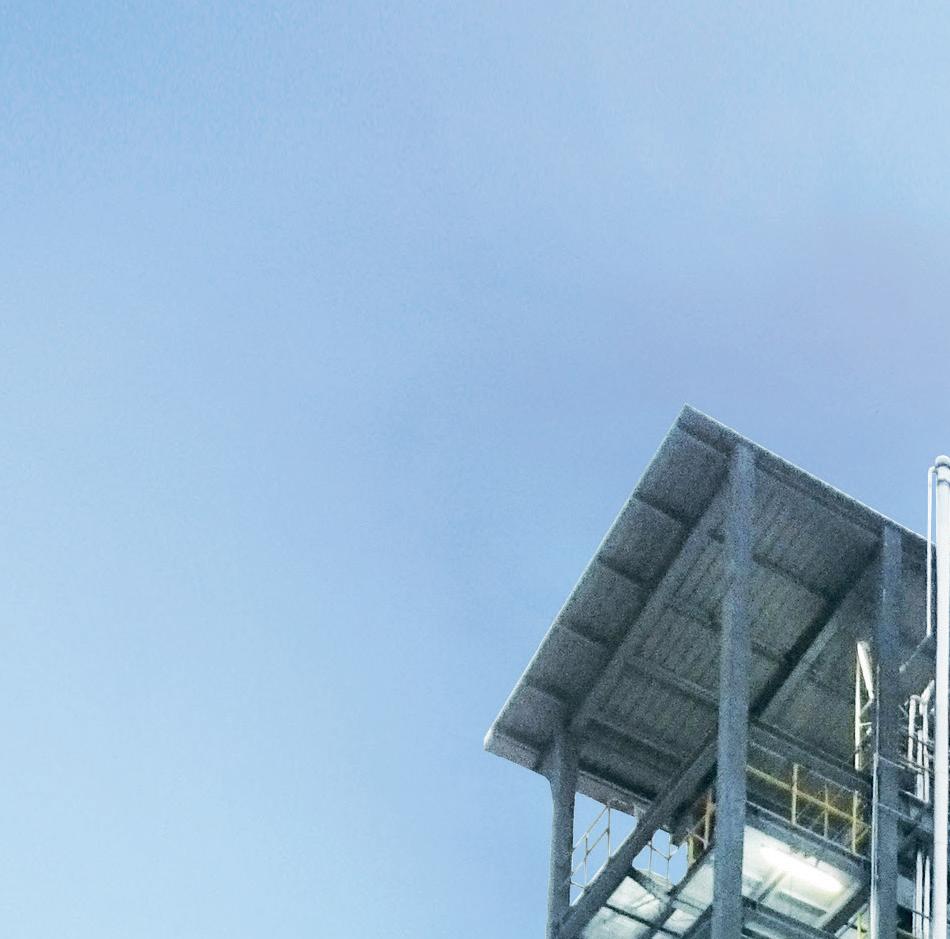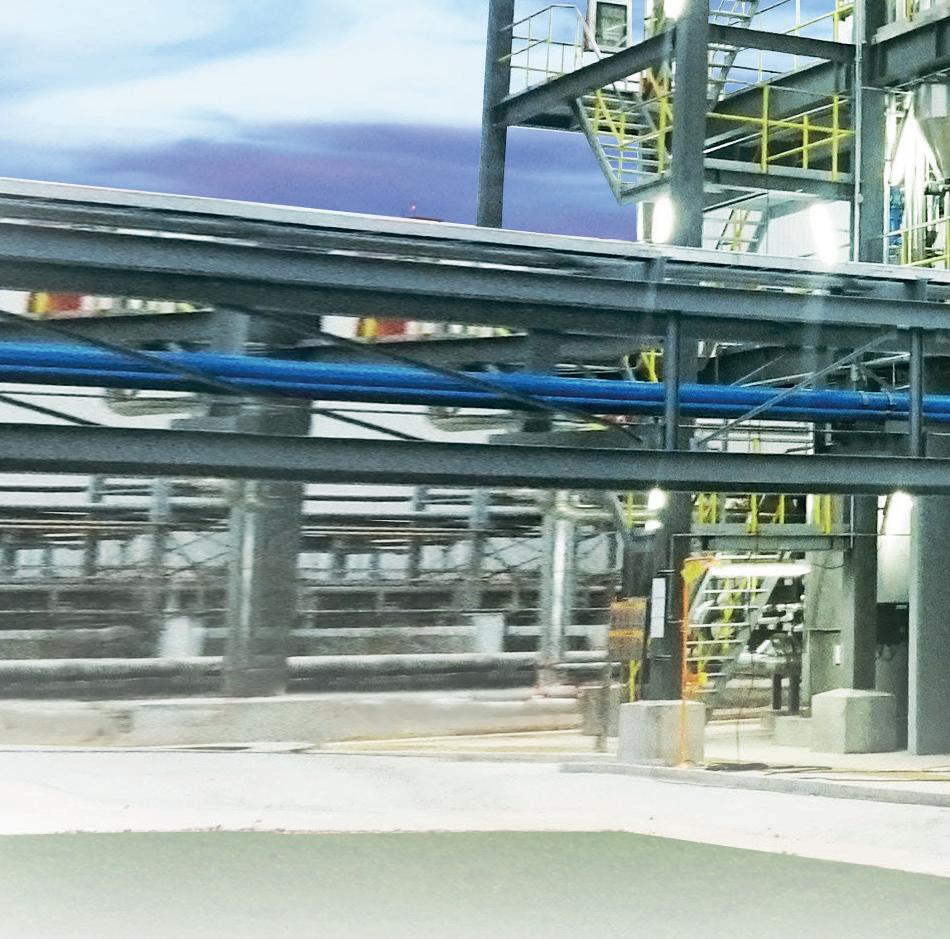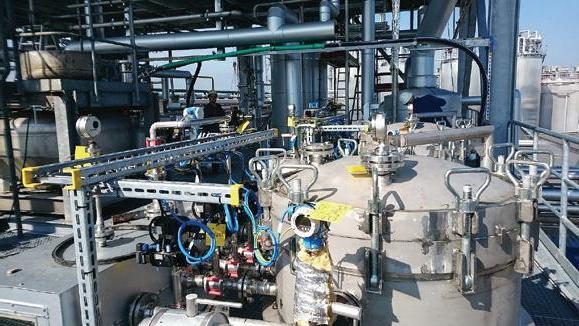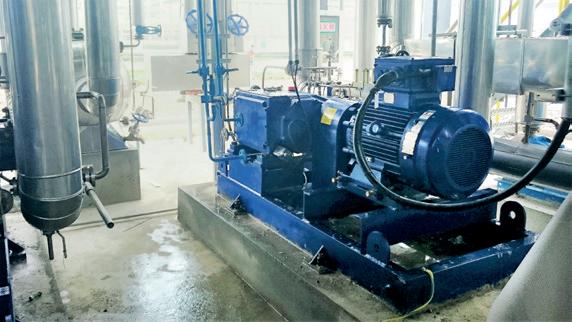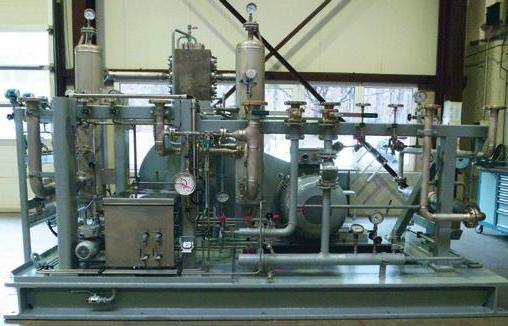
4 minute read
BA planning flights with partially sustainable fuel
IN BRIEF
SINGAPORE/CHINA: The Singapore subsidiary of oil giant Royal Dutch Shell has signed a US$155M biodiesel supply deal with Chinese chemical product company Jiaao Enprotech, Yicai Global reported on 9 February.
In the deal, Shell International Eastern Trading will buy a total of 150,000 tonnes of European Union-standard biodiesel fuel from the Chinese company over a three-year period starting from July, Yicai Global said.
The contract was due to start when Jiaao Enprotech’s new biodiesel production line started operation, trebling the firm’s current 50,000 tonnes/year output.
PARAGUAY: Biofuels producer ECB Group Paraguay announced on 26 January that it had signed a multiyear contract to supply global energy giant Shell with more than 2.5bn litres of renewable diesel and renewable jet fuel.
Forecast to start in 2024, the contract would involve the supply of more than 500M litres/year of biofuels, ECB said.
The renewable diesel (hydrotreated vegetable oil or HVO) and renewable jet fuel (synthetic paraffinic kerosene/SPK), also known as sustainable aviation fuel (SAF), would be produced at ECB’s planned Omega Green biorefinery in Paraguay.
BA planning flights with partially sustainable fuel
UK airline British Airways is planning to operate transatlantic flights partially powered by sustainable aviation fuel (SAF) as early as next year, the company announced on 9 February.
BA said it would be investing in a new plant in Georgia, USA, to be built by sustainable jet fuel company LanzaJet. The new facility would produce commercial-scale volumes of SAF made from ethanol derived from agricultural and other waste.
The fuel would create 70% fewer carbon emissions than conventional jet fuel, BA said.
Due to begin construction this year, the new Georgia plant would convert ethanol into SAF using a patented chemical process.
Meanwhile, Dutch airline KLM announced on 8 February that it had used sustainable synthetic kerosene on a commercial flight from Amsterdam to Madrid.
Shell had produced 500 litres of the sustainable synthetic kerosene from CO₂ and water using renewable energy sources, the KLM statement said.
In its statement, BA said the development and use of SAFs was a major focus for the company and formed part of its commitment to achieving net zero carbon emissions by 2050.
The airline had an existing partnership with sustainable fuels technology company Velocys, with the goal of building a facility to convert household and commercial waste into SAF in the UK.
BA’s parent company, International Airlines Group (IAG), would be investing US$400M in SAF in the next 20 years, the company said.
“Progressing the development and commercial deployment of sustainable aviation fuel is crucial to decarbonising the aviation industry,” BA CEO Sean Doyle said.
Investancia in feedstock deal with ECB
The pongamia tree produces a legume related to soyabean which is high in protein and oil Photo: Adobe Stock
Agroforestry and research company Investancia has signed a HVO feedstock deal with agro energy firm ECB Group that will involve the planting of 50M pongamia trees in Paraguay, ECB Group announced on 23 February.
ECB Group said the 30-year contract would involve the purchase of 300,000 tonnes/year of “reforestation oil” sourced from pongamia trees for use as a sustainable feedstock for its new Omega Green biorefinery.
The pongamia trees will be produced by Dutch/Paraguayan firm Investancia at its research and development centre near Carmelo Peralta in the Paraguayan Chaco region.
The site’s current 1M trees/year production capacity will increase to a total of 50M trees planted on 125,000ha over the next 10 years.
The agreement would diversify the portfolio of raw materials used at the Omega Green biorefinery with lower carbon intensity solutions, said ECB Group CEO Erasmo Carlos Battistella.
ECB Group’s new Omega Green biorefinery will be built in Villeta, Paraguay, and will have a total production capacity of 20,000 barrels/ day.
Pertamina plans green refinery operations by year end
Indonesia’s state-owned energy company PT Pertamina is planning to start the production of diesel and jet fuel entirely from palm oil at its Cilacap refinery by the end of this year, Reuters reported on 6 March.
The ‘green diesel’ produced at the facility would use refined, bleached and deodorised (RBD) palm oil, said senior Pertamina official Ifki Sukarya.
The other product produced at the refinery – ‘green jet fuel” – would use RBD palm kernel oil.
Pertamina was planning to process 3,000 barrels/day of RBD palm oil to produce D100 biodiesel with the first stage due to start in December, Reuters wrote.
By December 2022, the company aimed to process 6,000 barrels/day of crude palm oil to make biodiesel or jet fuel.
The green diesel and jet fuel production capacity at the refinery, on Java island, could be increased from 2023, Sukarya said.
Trials for the biodiesel and jet fuel had started in January 2021 and December 2020 respectively, Reuters said.

